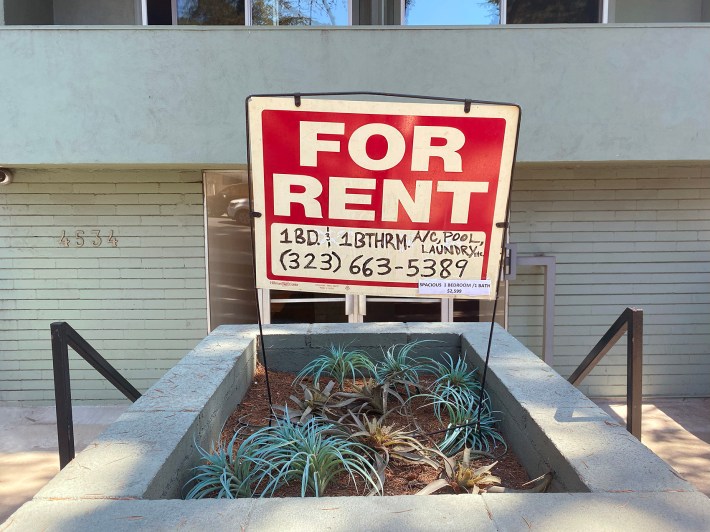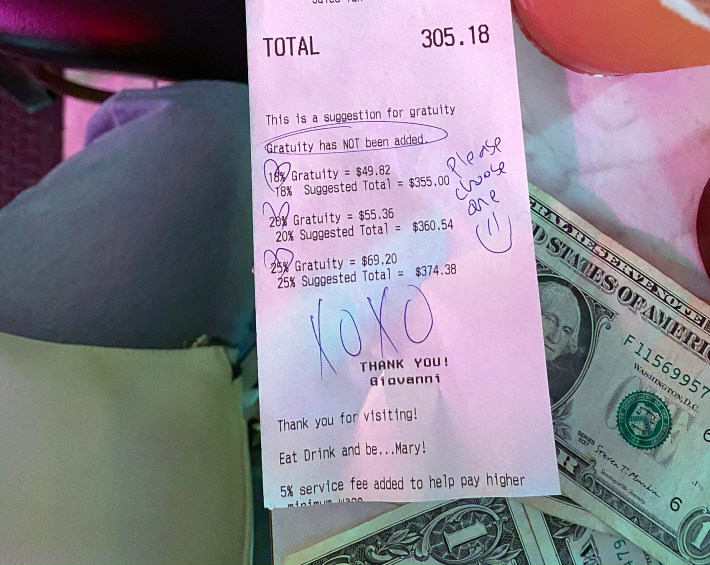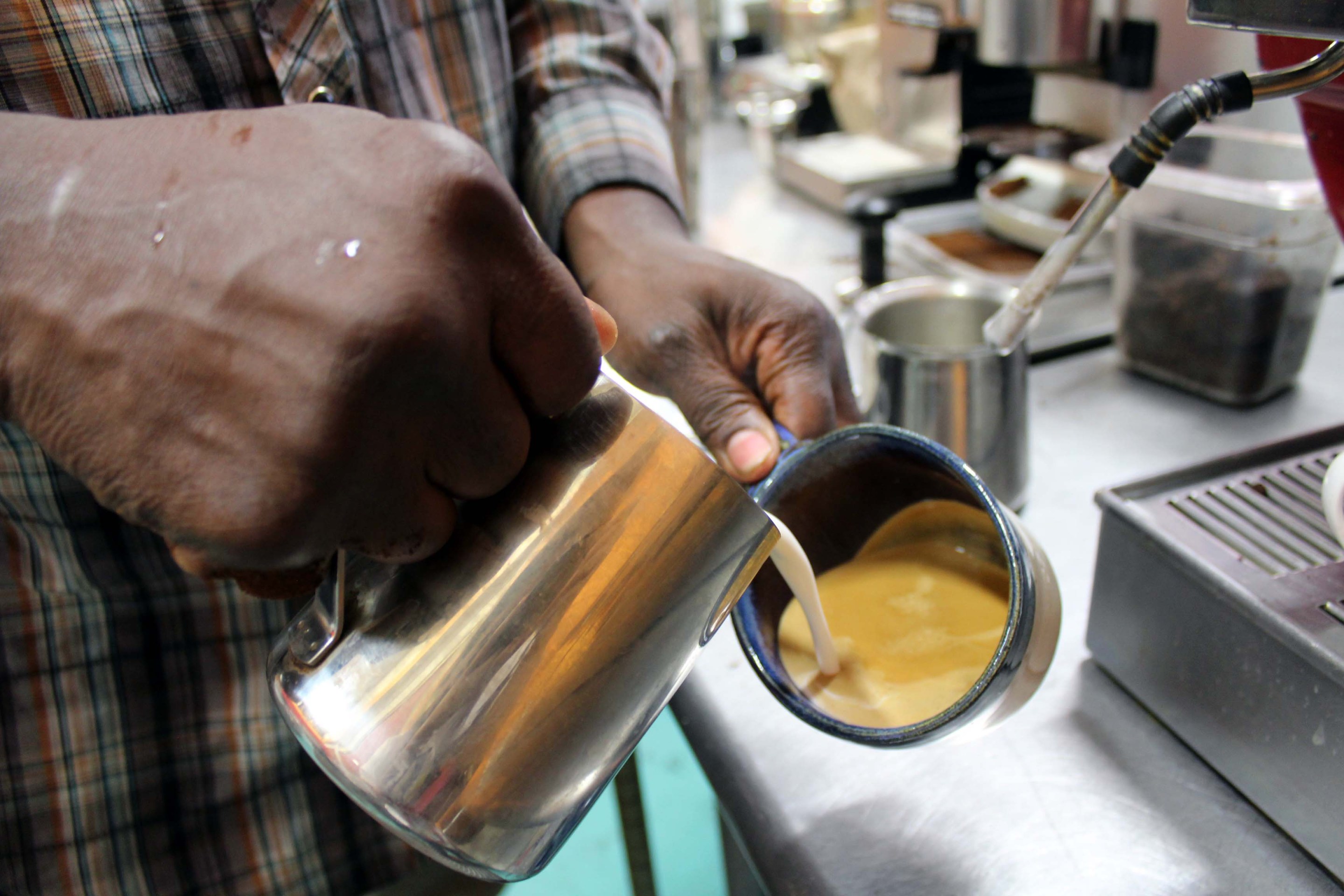An anonymous L.A. influencer trying to get internet-famous by leaving zero tips while eating and drinking around Los Angeles is the latest manifestation of a growing trend that sees consumers questioning and turning away from offering gratuities.
According to a Forbes survey, 18% of people in the U.S. tip less than 15%, and 2% said they don't tip at all. Their attitudes seem to defy the proven fact that many minimum wage workers depend on the extra money from tips to afford a decent quality of life.
Unlike many other cities, L.A. doesn’t deprive tipped employees of the same pay as their non-tipped co-workers, but this extra money earned on top of one’s salary can only stretch so far in a city with such extreme expenses.
Having a tablet with a suggested tip amount turned towards you at the register is a familiar experience in L.A. Not everyone feels inclined to tip the customary 15% or 20%, even if poor tipping practices are affecting whether tipped workers can meet the cost of living, even when combined with the minimum wage they receive.
Most people in tipped positions are minimum-wage employees, such as Elijah Davis, 27, an employee of Starbucks and AMC in L.A. County. Davis needs to work two jobs, around 30 to 50 hours a week, to afford basic needs.

Photo by Caitlin Melgar for L.A. TACO.
Davis usually finds himself closing the bar at AMC one night just to get up early in the morning to open at Starbucks. He does this while learning scripts as he furthers his acting career and works towards attaining his real estate license. Despite multiple sources of part-time income, Davis is on a tight budget while trying to live the L.A. dream with four roommates.
“This is how I have to survive out here in California,” said Davis, who moved from Chicago to L.A.
A common argument against an increased minimum wage has been based on the assumption that a majority of the tipped-workforce are teenage dependents who don’t need a living wage. However, about 55% of the minimum-wage workforce in the U.S. is 27 years or older, according to a 2022 report by the U.S. Bureau of Labor Statistics.
Jessie Hernandez, 23, a bartender at Cambria Hotel Calabasas, also relates to Davis’s situation.

Hernandez recently started her mobile bartending service to combat the slow tip seasons during winter and summer. She’s running this business in addition to her part-time hours behind the hotel’s bar. The need for extra income has also grown due to dining-and-dashing guests and the generally poor tip practices she has experienced.
“It can range from really good to nothing sometimes,” said Hernandez.
As the cost of living has risen over the last decade, so has the number of people working multiple jobs in the U.S., according to a study by the U.S. Census Bureau.
The median cost of rent for all rental properties in L.A. in 2024 is $2,800, according to Zillow. To afford a two-bedroom apartment in L.A., a person needs to make an hourly wage of at least $42.25, according to a 2023 report by the National Low Income Housing Coalition.
Jazzmin Pitts, 23, a budtender at Sweet Flower dispensary in Studio City, also says that the tips she makes dictate their standard of living. She has become tuned into the specific conditions that produce better tips, such as the day of the week, form of payment, or whether or not a tip is suggested during the payment process.
Nevertheless, Pitts is all too familiar with the large parties and regulars who don’t tip.
While they understand why people with lower incomes may not always tip, their observation is that wealthy people are not always prone to tipping. It often seems to them as if minimum wage service workers are just passing their tips around to each other.
“It makes it hard to go through life comfortably because you’re depending on others to fill your pockets instead of the company you’re supposed to be working for,” said Pitts.
The minimum wage in unincorporated L.A. County is $17.27. In 2024, California’s minimum wage was raised to $16, and the minimum wage for fast-food workers was raised to $20.
If someone were to work a full-time, minimum wage, fast-food job, their monthly salary would be roughly $3,000 of taxable income. However, most minimum-wage jobs are part-time, which could mean the monthly salary is below $2,000. Meanwhile, California’s GDP in 2023 was about $3.23 trillion, according to the Bureau of Economic Analysis.
“I feel like tipping is sometimes out of control, but how else do you expect us to make it?” said Pitts.
Although L.A. County’s minimum wage ordinance is working towards increasing the minimum wage to ensure the working class can survive amidst inflation and price gouging, the current minimum wage is still not a livable wage, and tips are not dependable enough to bridge the gap.
As service workers wait for legislation to help them, in the short term, they need their community of customers to tip them if they, and the businesses that depend on their labor, should survive. For a financially stable future, they simply need to be paid more to meet the financial demands of living and working within the communities they serve.







